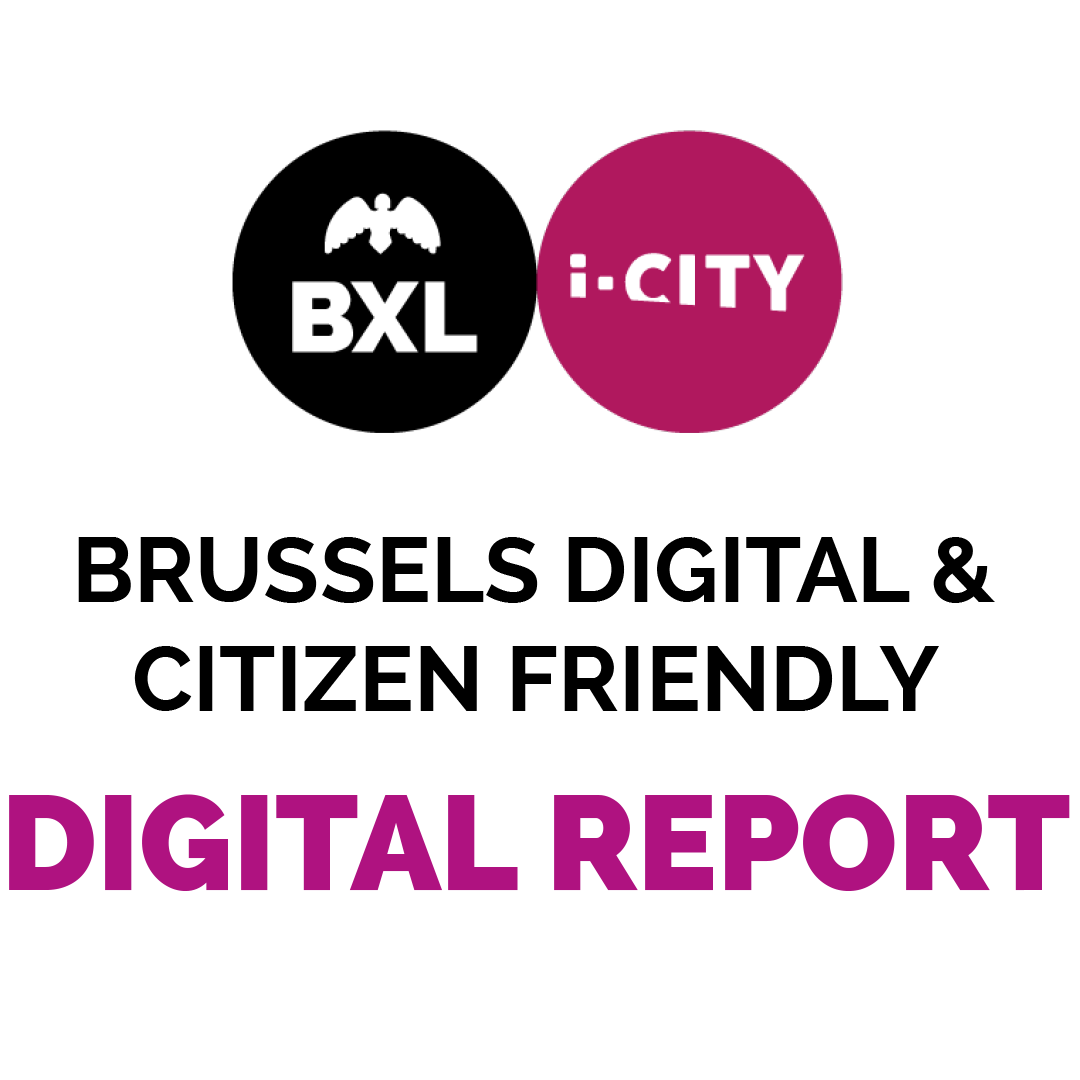Our core mission is to support the transformation of the City of Brussels into a smart city that meets needs of its users. This requires a far-reaching digital transition, supported by a number of projects and an omnichannel strategy that guarantees citizens access to the City's services via different channels.
Digital Process Factory
The Digital Process Factory (DPF) continued its work on digitalising administrative processes for the citizens of Brussels. In 2024, several new processes and functionalities were added to the MyBXL platform:
• Horeca: whether you want to obtain a licence to operate a business, apply for a terrace or display unit, or install an advertising hoarding, this new process allows you to monitor the progress of your application at any time, while reducing the number of trips to the authorities.
• Events: do you want to organise a neighbourhood event, a major festival or a sporting activity? You can now do this easily thanks to the MyBXL.be portal!
• Marriage: it is said to be one of the happiest days of your life... so it i's a good idea not to spoil the experience with cumbersome and time-consuming administrative formalities.
This process allows you to register your civil ceremony in Brussels.

MyBXL - The mobile application for citizens
The City of Brussels has launched MyBXL, a mobile application designed to strengthen the link between citizens and their administration. A truly interactive portal, MyBXL makes it possible to:
- easily access local news
- carry out administrative procedures online
- interact with local services
- discover the city in a different way, thanks to navigation tools and point-of-interest locators.
This application is part of a vision of active citizen participation that began several years ago, and aims to reinvent the user experience by making it more fluid, connected and inclusive.

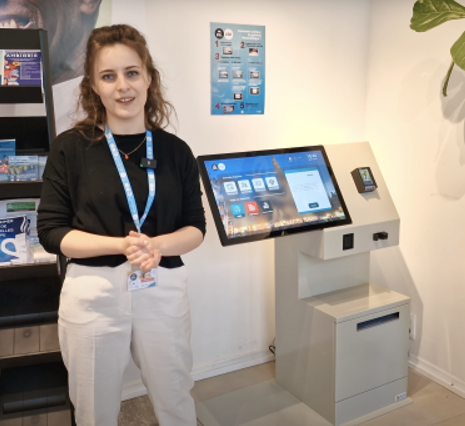
Innovations & AI
The City of Brussels launched a mass emailing pilot project using Customer Insight Journey, with the aim of communicating more effectively with its citizens. This solution, which is fully integrated into the digital platform (but can still be used on its own), was configured and produced to support the mass communications of the Immigration Office.
As part of the drive to get closer to citizens and combat the digital divide, a total of eight new self-service kiosks were deployed in the various decentralised offices and at local partner sites. This brought the total number of kiosks to 16, covering the whole of Brussels.
In 2024, i-CITY strengthened its innovation drive to anticipate the digital uses of tomorrow. In a constantly changing world, the ability to test, learn and adapt quickly has become essential. These experiments in artificial intelligence demonstrate our determination to remain at the cutting edge of useful technologies, while maintaining the clear focus of: serving citizens, supporting agents and guaranteeing ethical practices.
AI Hackathon: imagining tomorrow's contact centre
In 2024, i-CITY took part in a hackathon co-organised with Microsoft to design a prototype incorporating artificial intelligence technologies.
Innovation Challenge with CISCO: the citizen experience in question
A joint i-CITY / City of Brussels team took part in Cisco's Innovation Challenge, alongside the cities of Charleroi and Swift. The challenge: to understand why some citizens leave Brucity without completing their process, due to a lack of guidance or support.

Focus on the "City in 10 minutes" project
This drive for innovation has also resulted in better use of available data. High-profile projects have been launched, such as "City in 10 minutes" and "Major urban projects", which aim to bring the administration closer to its citizens, improve communication and align infrastructures with the concrete needs of users.
With this in mind, i-CITY has designed an interactive mapping tool to promote access to essential services within a ten-minute walk, thus helping to improve the quality of life in the city.
This project is based on the integration of 72 types of services, from 36 data sources, divided into 15 major themes.
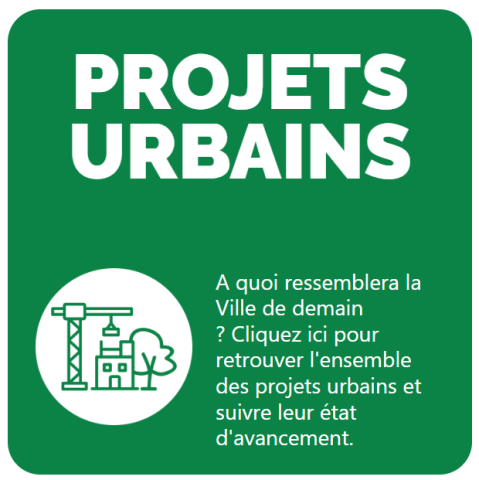
The Urban Projects application is now online!
Alongside the "City in 10 minutes" application, which provides information on the existing range of facilities and services in the City of Brussels, the "Urban Pprojects" application is designed to keep everyone informed and allow them to follow the progress of the major urban development projects on which the City is working and which will have an impact on neighbourhood life.
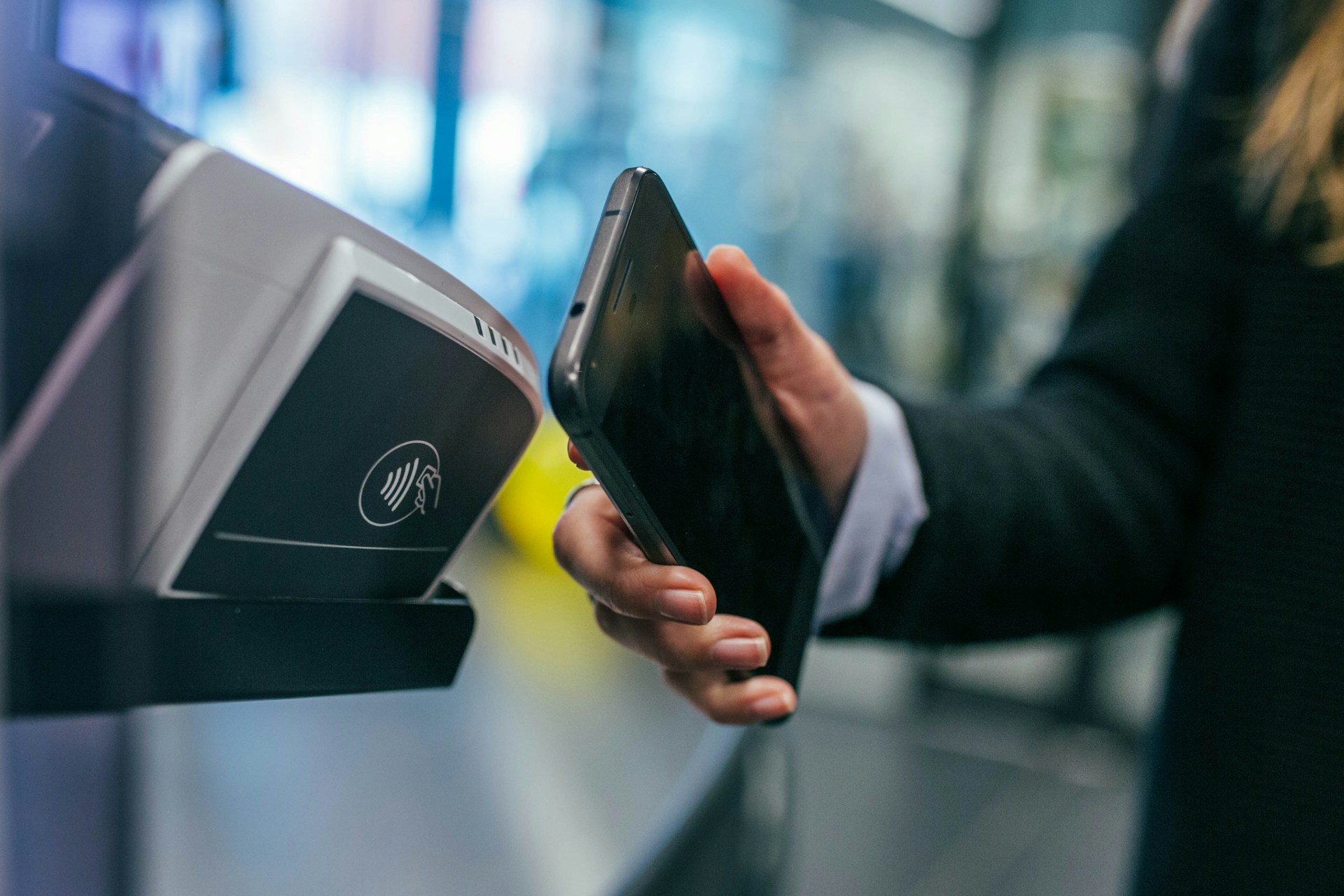
ePayment: digital services for citizens
This year marked a decisive step in the ePayment programme, with the launch of the first payment processes at the counter via the digital platform. This roll-out opened up access to new payment methods, such as the payment terminal and the cash terminal. This was an essential development, enabling the platform to expand its range of services to meet citizens' expectations even more effectively.
Digitalisation of public asset management: Horta
The public asset maintenance management solution (OPP) went live, marking a new era for the public works teams and their main partners (roads, public education, etc.). All the buildings, work requests, communications and related reports are now digitised, enabling all the players in the chain to work in a unified and coherent way.
Document management - a successful strategic migration
The complete migration of documents from Alfresco (an ageing regional solution) to SharePoint Online was completed successfully. This move paved the way for :
- better integration with digital processes
- optimised management of the lifecycle of documentary evidence
- enhanced traceability, essential in the context of the GDPR
Public Education (PE) continued its modernisation with several key projects in 2024
Accessible, modern libraries thanks to a range of solutions:
- Open+ solution for libraries that are connected and accessible outside normal opening hours
- self-service solution so that users can borrow, return or renew loans completely independently
- installation of intelligent camera counters to analyse the number of people using libraries
- banking terminals integrated into digital solutions to pay fees and penalties
Optimisation and refinement of the digital school enrolment process for FR schools.
Implementation and fine-tuning of more than 40 BI reports to provide quality data to facilitate management and decision-making for PE departments.
Support for the PE in testing a digital system for managing different school fees (childcare costs, etc.) using mobile equipment and QR codes.
Preparation of the project to move the Palais du Midi to different institutions and organisation of cabling solutions and user equipment.
Modernisation of applications to migrate them to a robust and secure infrastructure.

The other challenges of digital transformation
HR Solutions: i-CITY speeds up the modernisation of tools
IT solutions in the field of human resources.
The heart of the HRIS for the City of Brussels, HRa, was migrated to a multi-tenant architecture, enabling the management of CPAS files to be accommodated, creating synergy and pooling IT-related costs.
The Humanis project will enable the CPAS to manage its staff's contracts, careers, absences and attendance, payroll and declarations via HRa. The first HRa payroll runs are scheduled for the end of March 2025.
In addition to back-office management, the roll-out of an agent and manager portal, HRa4You, is planned for 2025; this will digitise a number of HR processes at the CPAS, which will be accessible from any terminal, laptop, tablet or smartphone.
Over the course of 2025, HRa will enable the processing of more than 120,000 payslips, ultimately involving four companies, the City of Brussels, the CPAS, the Mont de Piété and Maisons de Quartier, for which the CPAS handles part of the management, including payroll.
But the business is not limited to HRa. A new contract was awarded for the implementation of the Cornerstone e-learning solution, Brucity Academy, which will be deployed in 2025.
The Kitry medical information system used by the SICPPT of the City of Brussels will be upgraded to a major new version, in SaaS mode, incorporating the management of work-related accidents.
ASBLs, Associations and their digital evolution
At the beginning of 2024, the satisfaction level of ASBLs and Associations with the IT services provided by i-CITY was low (an average score of 4.86/10 across all ASBLs). The Executive Committee set an ambitious goal for us: to reach a satisfaction level of 7.5/10. By the end of the year, we had achieved this target, reaching an average satisfaction score of 7.63/10 across all ASBLs and Associations. To achieve this, the teams worked along the following lines:
Operational Excellence, which involved daily interactions with i-CITY Operations, as well as monitoring the performance of our services (notably through SLAs) and quarterly satisfaction tracking during service meetings with the beneficiaries of i-CITY’s IT services.
Delivery of critical projects for ASBLs and Associations:
Transformation of the infrastructure of Les Cuisines Bruxelloises (LCB): This project lasted over a year. We progressively upgraded their IT environment. Six major milestones have already been successfully completed: (1) Assessment of the existing infrastructure, (2) remediation and upgrading, (3) provisioning of standard i-CITY equipment (laptops, accessories, etc.), (4) segregation of LCB’s network infrastructure from the hospitals, (5) network interconnection of LCB’s 7 sites with i-CITY, (6) hosting of LCB’s application servers (VMs) by i-CITY.
Delivery of an accounting solution for ASBL Brufête and Bruxelles Musée Expo.
Delivery of the final modules of the LIOS application for ASBL Bravvo.
Implementation of connectivity services or modernization of cabling across 10 sites, with beneficiaries including Jeunesse à Bruxelles, the Maisons de Quartier, Bravvo, and Bapa.
Major network upgrade at the King Baudouin Stadium, with the deployment of over 100 wired network points and Wi-Fi access (new locker rooms, new press rooms, etc.).
Implementation of professional IT services for critical activities of several ASBLs and Associations: playground operations for ASBL Jeunesse à Bruxelles and connectivity for the Winter Wonders event of ASBL Brussels Major Event.
We also established a service agreement with a new beneficiary, Mont-de-Piété, also known as the Caisse Publique de Prêts. This is a public institution under the authority of the City of Brussels. For over 400 years, its core activity has been pawn lending. This agreement marks the first step in digitizing their core tools to serve citizens even more effectively.
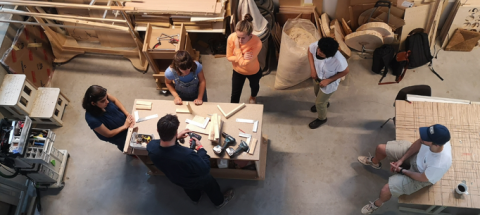
CITYFAB1
In 2024, cityfab 1, the fablab managed by i-CITY, continued its mission of promoting maker culture and fighting the digital divide through a range of activities (training, team -building, events) aimed at a wide audience.
With an increasingly balanced gender split (39% female visitors), Cityfab 1 welcomed 2,643 people, organised 90 training courses and continued to develop partnerships, particularly with schools (ARBA, Francisco Ferrer, CAD, OKAN, etc...).
2024 also saw the arrival of a resident - Madeleine de Mey, who explored zero waste and upcycling; this was - the conclusion of the European Shaping the Future project, which aimed to strengthen the ability of artists to imagine and shape the future through the visual arts. Last but not least was the Maker Faire, an intergenerational event aimed at everyone, whatever their level of knowledge, which attracted no fewer than 3,000 visitors
